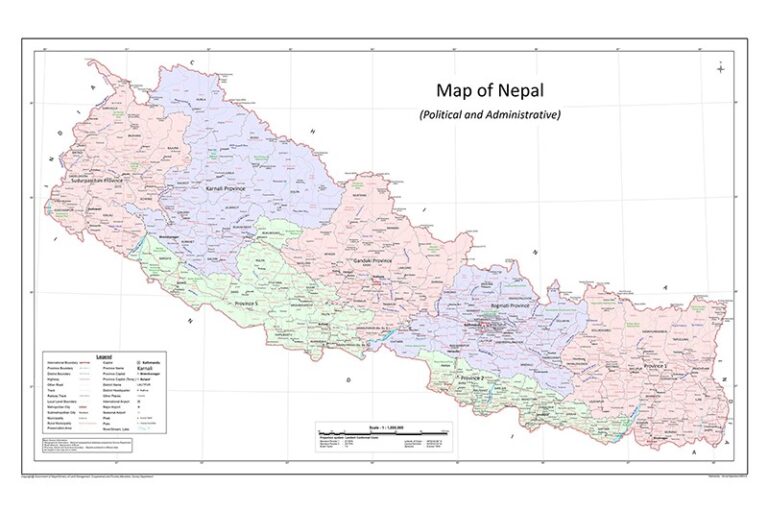
The government has decided to ensure community nursing services at each ward so as to promote people’s access to healthcare services.
Unveiling the ‘National Nursing and Midwifery Strategy (2077/78 BS-2087/88 BS)’ here today, the Ministry of Health and Population has announced its plan to implement the ward-level community nursing services.
The service will be aimed to increase people’s access to maternity and neonatal health and geriatric services at the local level. Nepal has 753 local levels consisting of 6,743 wards.
The 10th-year Strategy was unveiled in the presence of the Minister for Health and Population, Bhawani Prasad Khapung.
The Strategy promises to manage a school nurse at each school and ensure nursing or health care services in the industrial sector.
On this occasion, Health Minister Khapung insisted on the need of expanding the coverage of healthcare services to all areas.
He admitted the State is yet to provide health care services to the citizens as guaranteed by the Constitution. People continue to visit the Ministry seeking the availability of medical and nursing care within the locality, according to the Minister. “Equity in the healthcare services delivery is required and the Strategy aims to enhance nursing services.”
Also speaking on the occasion, health secretary Dr Roshan Pokhrel said it has been challenging to send health workers to rural and hilly districts, adding that the Strategy mandates the deputations of the health workforce to rural and hilly areas.
Ministry chief specialist Dr Shyam Sundar Yadav was of the view that the reductions in maternal and child mortality rates were achievable provided that the Strategy could be implemented.
“It has however failed to incorporate the private healthcare sector. A noticeable size of the nursing force is associated with the private sector and a strategy is needed to monitor the private health sector”, added Yadav.
Nursing and Social Security Division director Goma Devi Niroula said the Strategy seeks to mobilise a quality nursing workforce in the health sector to enhance healthcare services, making the sector more professional.
Division Hospital Nursing administrative Bala Rai said the objective of the Strategy is to strengthen the quality of health services, making it accessible for all the needy.
Nursing would be developed as a specialised service. Similarly, to increase quality education for nurses and midwives, minimum standards of physical infrastructures and human resources for educational institutions would be amended in line with the international standards, according to the Strategy.
It aims to produce the workforces required to address the demands in the country amidst a lack of human resources in nursing according to the workforces in nursing projection. The production of workforces in nursing will be based on the projection. Similarly, the supply and mobilisation of nurses and midwives would be made after carrying out an organisational and managerial survey.
Educational programmes would be launched at government and private educational institutions after preparing integrated national curriculums based on a census and projection of human resources of nurses and midwives in line with federalism.
There are a total of 68,316 registered nurses, 28 midwives, 36,754 Auxiliary Nurse Midwives and 598 nursing specialists in the country. (RSS)






